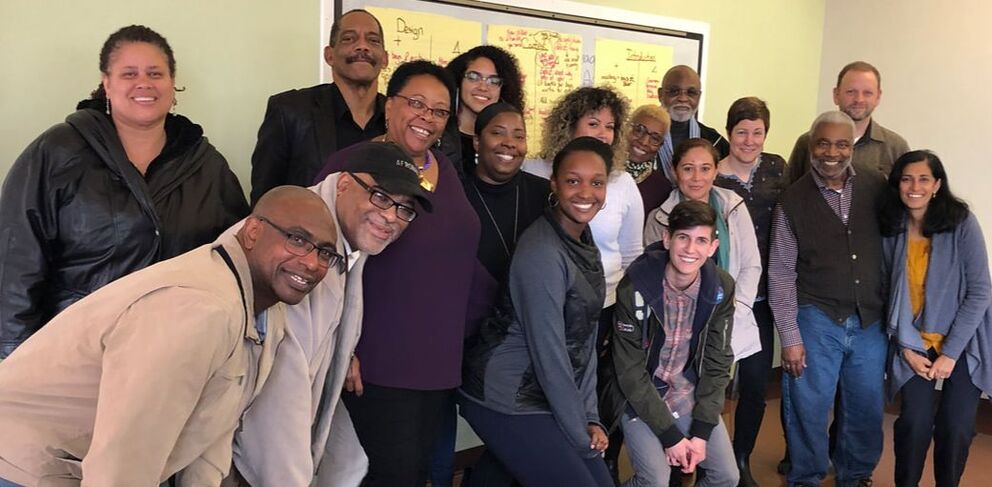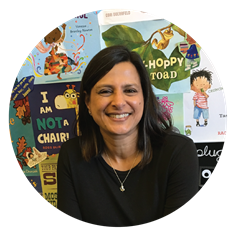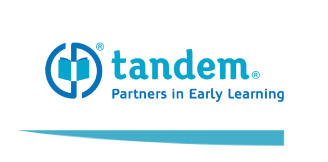Partner Spotlight: Oakland Starting Smart and Strong Promoting Positive Outcomes for Boys of Color and Their Families

Over ninety percent of human brains develop in the early childhood years, between the ages of 0 and 5. When children and the caring adults in their lives engage in high-quality early learning experiences, it facilitates healthy brain development, creating the neural foundation for all future learning. At Tandem, we believe that these caring adults — parents, family members, and educators — are brain architects, and our mission is to provide them with tools, resources, and strategies to support children’s learning and healthy brain development.
A similar mission, of promoting early learning by supporting the adults in a child’s life, is also at the heart of Oakland Starting Smart and Strong (OSSS), one of three California communities supported by the David and Lucile Packard Foundation’s Smart and Strong Initiative. OSSS brings together a variety of city, county, and community-based organizations in a strong early learning network, with the goal of collectively identifying innovative solutions that help children learn, grow, and thrive.
Since 2017, Tandem has been a part of Oakland Starting Smart and Strong. Specifically, Tandem team members have participated in the Boys of Color (BoC) Early Years Health and Education Workgroup. Comprised of health and education providers, practitioners, and advocates from city, county and community-based agencies, the BoC Workgroup aims to “identify, recommend, and support the development of effective practices, programs and policies for those working with young boys of color.”¹ The mission of the BoC Workgroup is grounded in an acknowledgement that boys of color and their families disproportionately impacted by adverse economic and social circumstances due to structural inequalities, and in the understanding that we need better and more culturally responsive strategies for promoting school readiness and school success for boys of color.
Upon its formation, a key charge of the BoC Workgroup was to identify a common set of indicators for young children in Oakland, which revealed significant disparities for boys of color. These indicators include preschool experience, school readiness, regular school attendance, English learner status, and 3rd grade reading proficiency. The Workgroup then put out a Call to Action, inviting local leaders and service providers to hold themselves accountable to the highest standards in these areas for boys of color and their families.
A next priority for the Workgroup was to examine the Oakland ecosystem to pinpoint the local agencies and programs that are improving outcomes for boys of color, and to determine the strategies they are employing to do so. After identifying the local agencies promoting educational success for boys of color, the Workgroup interviewed them and distilled their strategies in a report, the Promising Practices Portfolio: Strategies for Supporting Boys of Color and their Families for Improved Early Years Outcomes. This report highlights four common practices in use among agencies that are working successfully with boys of color and their families: cultural responsiveness, family collaboration, teacher collaboration, and systems partnership. Additionally, the report also offers a detailed listing of each agency, describing how these promising practices are translated into concrete strategies appropriate for each agency’s mission, context, and target audience.
At present, the BoC Workgroup is in the process of developing workshops to support awareness and wider implementation of the promising practices, aimed for a target audience of educators, family support professionals, and service providers.
It has been an honor and a humbling experience for Tandem to participate in the BoC Workgroup. We are deeply appreciative of the opportunity to learn from colleagues in other community-based organizations about how they are approaching their work with boys of color, the strategies they are utilizing to promote educational success for this group of children and their families, and the standards to which they are holding themselves accountable. An important area of conversation has centered on how we can adopt a strengths-based approach to describe the systemic challenges that boys of color and their families encounter — and how we can do so while honoring the richness of their experiences and their contributions to the community. While we are proud to be featured in the Promising Practices Portfolio, it is also a tool that we use for continuous assessment, to examine our implementation of the promising practices and identify how we can improve upon them.
¹P5., Promising Practices Portfolio
Feature photo credit: from the Promising Practices Portfolio: Strategies for Supporting Boys of Color and their Families for Improved Early Years Outcomes

Savitha Moorthy
Executive Director
Savitha was brought up to leave the world a little bit better than she found it. For her, this has meant dedicating her life to improving learning opportunities, experiences, and outcomes for young children, especially those growing up in under-served communities. Savitha holds a PhD in Education from Stanford University and a Masters in Applied Linguistics from the University of Hyderabad, in India.

Des Michel
Program Supervisor, Alameda County
Des has been at Tandem since 2017, and enjoys working with families in Alameda County. Outside of work, Des is a hiking enthusiast, portobello burger lover, and perpetual chess loser.

